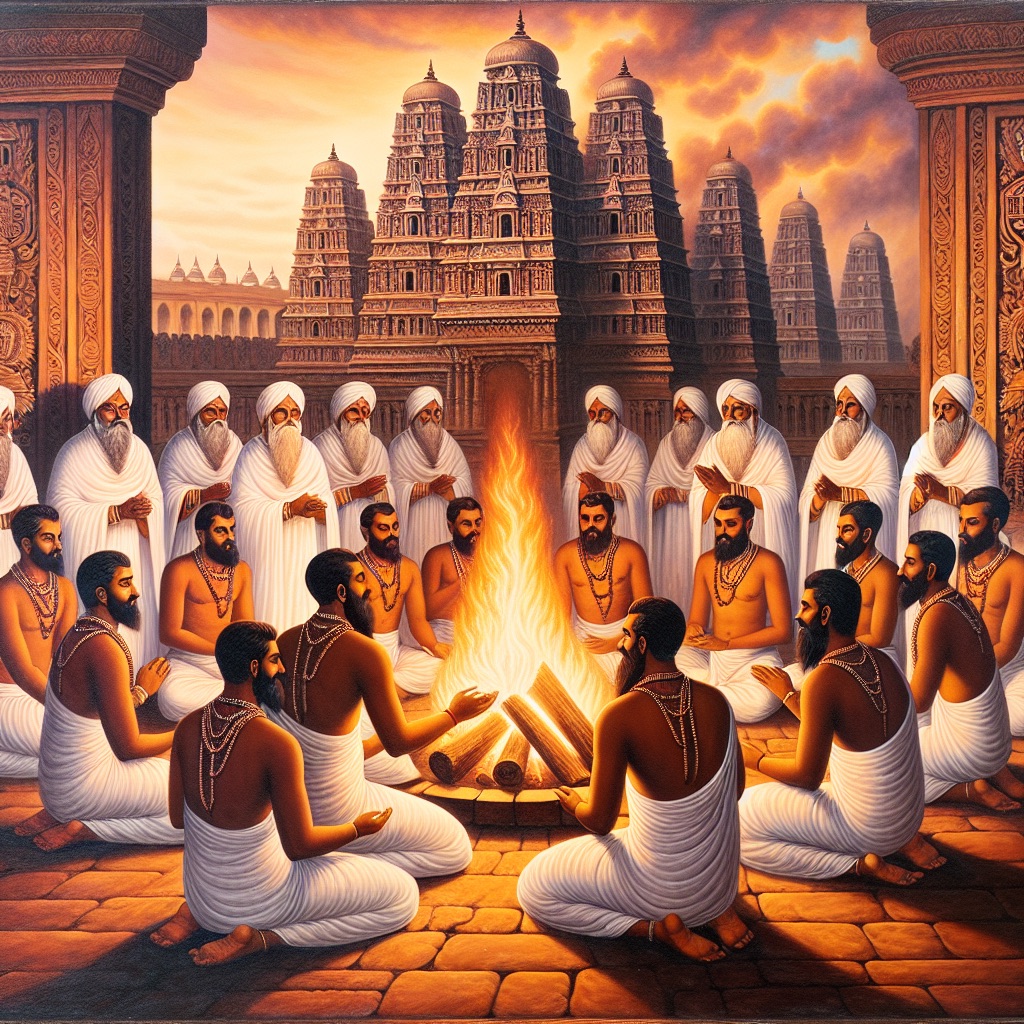1.2.7
He desired, ‘Let this body of mine be fit for a sacrifice, and let me be embodied through this,’ (and entered it). Because that body swelled (Aśvat), therefore it came to be called Aśva (horse). And because it became fit for a sacrifice, therefore the horse sacrifice came to be known as Aśvamedha. He who knows it thus indeed knows the horse sacrifice. (Imagining himself as the horse and) letting it remain free, he reflected (on it). After a year he sacrificed it to himself, and dispatched the (other) animals to the gods. Therefore (priests to this day) sacrifice to Prajāpati the sanctified (horse) that is dedicated to all the gods. He who shines yonder is the horse sacrifice; his body is the year. This fire is Arka; its limbs are these worlds. So these two (fire and the sun) are Arka and the horse sacrifice. These two again become the same god, Death. He (who knows thus) conquers further death, death cannot overtake him, it becomes his self, and he becomes one with these deities.
-
सोऽकामयत
so'kāmayata —
-
मेध्यं
medhyaṃ —
-
म
ma —
-
इदं
idaṃ —
-
स्यात्
syāt —
-
आत्मन्व्यनेन
ātmanvyanena —
-
स्यामिति
syāmiti —
-
ततोऽश्वः
tato'śvaḥ —
-
समभवत्
samabhavat —
-
यदश्वत्
yadaśvat —
-
तन्मेध्यमभूदिति
tanmedhyamabhūditi —
-
तदेवाश्वमेधस्याश्वमेधत्वम्
tadevāśvamedhasyāśvamedhatvam —
-
एष
eṣa —
-
ह
ha —
-
वा
vā —
-
अश्वमेधं
aśvamedhaṃ —
-
वेद
veda —
-
य
ya —
-
एनमेवं
enamevaṃ —
-
वेद
veda —
-
तमनवरुध्यैवामन्यत
tamanavarudhyaivāmanyata —
-
तं
taṃ —
-
संवत्सरस्य
saṃvatsarasya —
-
परस्तादात्मन
parastādātmana —
-
आलभत
ālabhata —
-
पशून्देवताभ्यः
paśūndevatābhyaḥ —
-
प्रत्यौहत्
pratyauhat —
-
तसमात्सर्वदेवत्यम्
tasamātsarvadevatyam —
-
प्रोक्षितं
prokṣitaṃ —
-
प्राजापत्यमालभन्ते
prājāpatyamālabhante —
-
एष
eṣa —
-
ह
ha —
-
वा
vā —
-
अश्वमेधो
aśvamedho —
-
य
ya —
-
एष
eṣa —
-
तपति
tapati —
-
तस्य
tasya —
-
संवत्सर
saṃvatsara —
-
आत्मा
ātmā —
-
अयमग्निरर्कः
ayamagnirarkaḥ —
-
तस्येमे
tasyeme —
-
लोका
lokā —
-
आत्मानः
ātmānaḥ —
-
तावेतावर्कामेधौ
tāvetāvarkāmedhau —
-
सो
so —
-
पुनरेकैव
punarekaiva —
-
देवता
devatā —
-
भवति
bhavati —
-
मृत्युरेव
mṛtyureva —
-
अप
apa —
-
पुनर्मृत्युं
punarmṛtyuṃ —
-
जयति
jayati —
-
नैनम्
nainam —
-
मृत्युराप्नोति
mṛtyurāpnoti —
-
मृत्युरस्यात्मा
mṛtyurasyātmā —
-
भवति
bhavati —
-
एतासां
etāsāṃ —
-
देवतानामेको
devatānāmeko —
-
भवति
bhavati —

